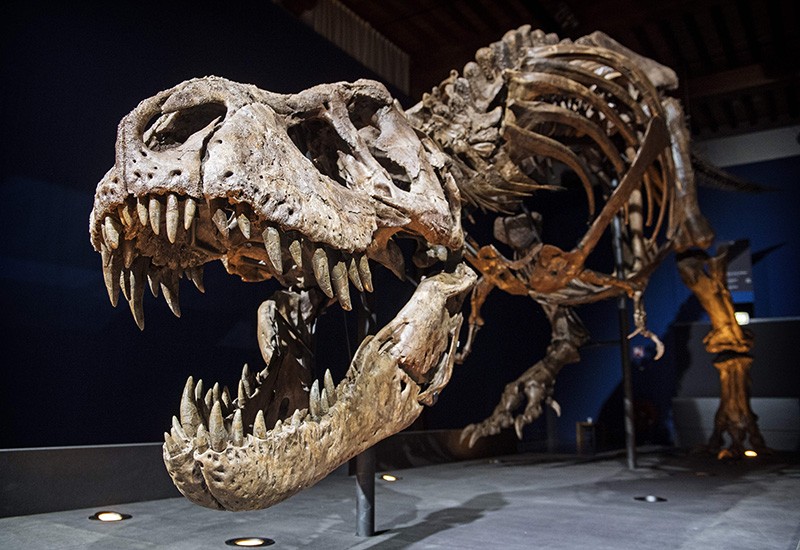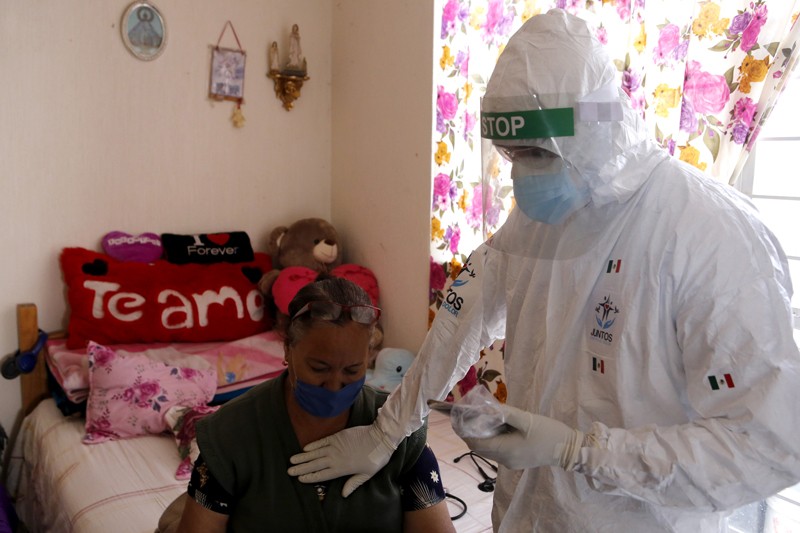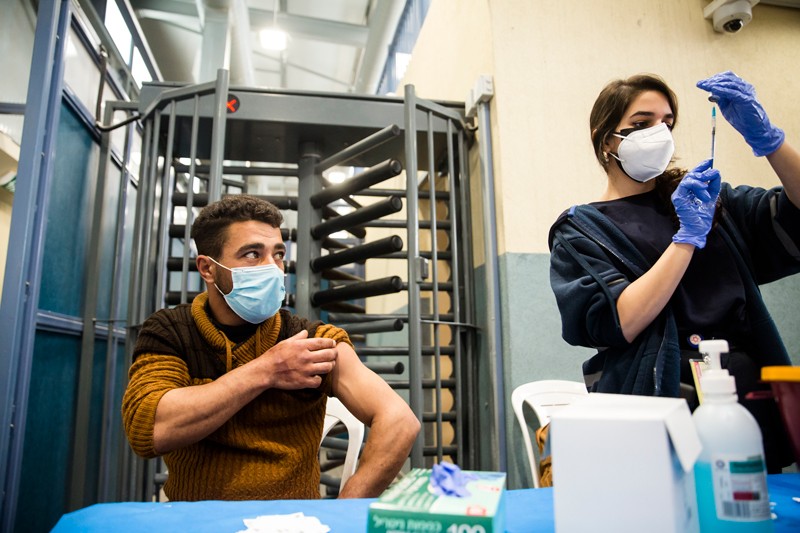How many T. rex existed? Calculation of dinosaur’s abundance offers an answer
Ever wondered how many Tyrannosaurus rex roamed Earth? The answer, according to a new calculation, is 2.5 billion over the 2 million or so years for which the species existed (C. R. Marshall et al. Science 372, 284–287; 2021). The figure has allowed researchers to estimate just how exceedingly rare it is for animals to fossilize.
Palaeontologists led by Charles Marshall at the University of California, Berkeley, used a method employed by ecologists studying living creatures to estimate the population density of T. rex during the late Cretaceous period (100 million to 66 million years ago).
“You hold a fossil in your hand and you know it’s rare. The question is, how rare?” says Marshall. “To know that, you need to know how many of them existed.”
To answer that question, he and his co-authors turned to a method used to estimate the population density of living animals from their body mass and the geographic ranges that they occupy. Damuth’s Law stipulates that the average population density of a species decreases in a predictable way as body mass increases; for example, there are fewer elephants in a given area than there are mice.
The team used their estimates of the total range of T. rex across modern North America, combined with their estimates of the dinosaur’s body mass, to calculate that, at any one time, around 20,000 T. rex would have been alive on the planet. That translates to around 3,800 T. rex in an area the size of California, or just two T. rex patrolling Washington DC.
Calculating that T. rex survived for about 127,000 generations, the researchers came up with a figure of 2.5 billion individuals over the species’ entire existence. Only 32 adult T. rex have been discovered as fossils, so the fossil record accounts for just one in about every 80 million T. rex. This means that the chances of being fossilized — even for one of the largest-ever carnivores — were vanishingly small.
These numbers suggest that fossils in general are exceedingly rare, and hint that many species that were much less widespread than T. rex were probably never preserved, says Marshall.
Asthma medicine could shave days off COVID illness
A clinical trial in more than 4,600 people at risk of serious COVID‑19 found that an inhalable asthma medication shortened the duration of disease symptoms by about 3 days.
The asthma drug budesonide is an inexpensive and widely available inhalable steroid. Christopher Butler and Richard Hobbs at the University of Oxford, UK, and their colleagues tested budesonide in people who had COVID-19 symptoms but were not hospitalized (PRINCIPLE Collaborative Group et al. Preprint at medRxiv https://doi.org/f6hf; 2021).
Participants were either over the age of 65 or more than 50 years old with conditions that increased their risk of COVID‑19 complications. Participants were randomly assigned to either receive the drug or serve in a control group, but none took a placebo. Both participants and investigators knew who had received the drug.
Those who took budesonide twice daily for two weeks reported that their COVID-19 symptoms ended three days earlier than those who did not use the steroid. The results have not yet been peer reviewed.
COVID vaccination scheme keeps variants under control
Israel’s world-leading vaccination programme seems to be keeping worrying coronavirus variants at bay.
More than 60% of people in Israel have received Pfizer’s COVID-19 vaccine, and cases are dropping. But variants such as B.1.1.7, which was first identified in the United Kingdom, are also circulating in Israel. To determine their effects, a team led by Adi Stern at Tel Aviv University and Shay Ben‑Shachar at the Clalit Research Institute in Ramat Gan, both in Israel, analysed ‘breakthrough infections’ recorded among several hundred vaccinated people (T. Kustin et al. Preprint at medRxiv https://doi.org/f6g3; 2021).
Almost 250 of the breakthrough infections were in people who had received one of two vaccine doses. The researchers compared these cases with the same number of infections in unvaccinated individuals, and found that infections in partially immunized people were slightly more likely to be caused by B.1.1.7.
The researchers also studied 149 breakthrough infections in people who had received both vaccine doses. Eight of these were caused by the B.1.351 variant, first identified in South Africa. This variant caused just one infection out of 149 in unvaccinated controls, suggesting that the vaccine is less effective against B.1.351 than against other variants.
"control" - Google News
April 21, 2021 at 03:07PM
https://ift.tt/3tEKsUW
Every T. rex, COVID asthma drug and variant control - Nature.com
"control" - Google News
https://ift.tt/3bY2j0m
https://ift.tt/2KQD83I
Bagikan Berita Ini

















0 Response to "Every T. rex, COVID asthma drug and variant control - Nature.com"
Post a Comment